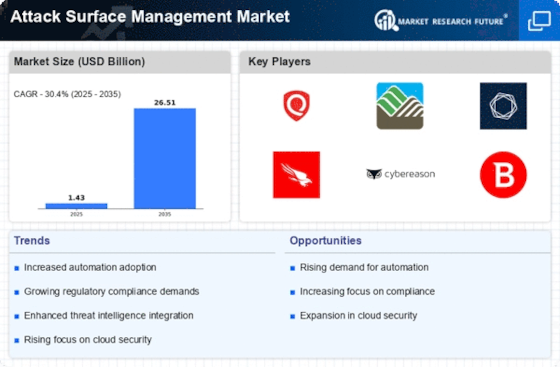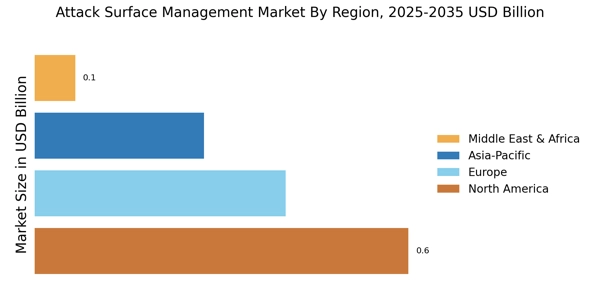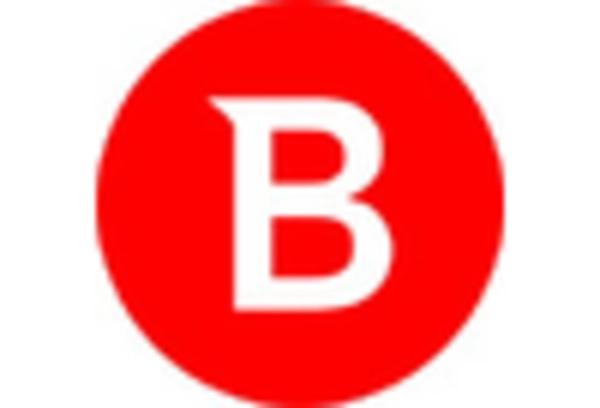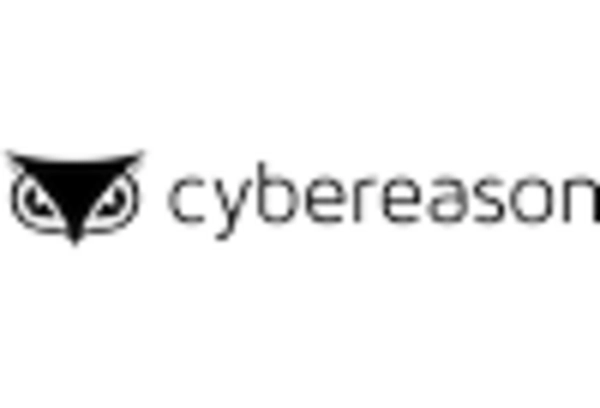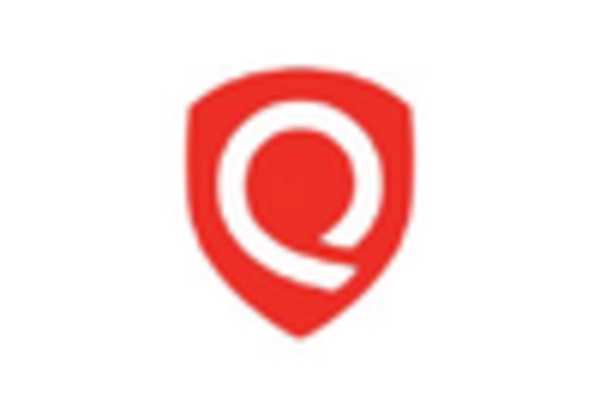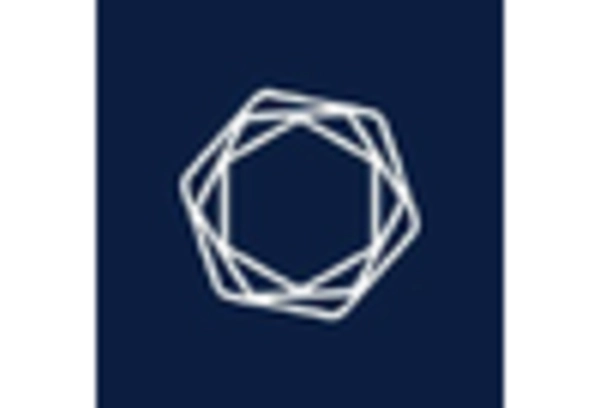Rising Cybersecurity Threats
The increasing frequency and sophistication of cyberattacks is a primary driver for the Attack Surface Management Market. Organizations are facing a multitude of threats, including ransomware, phishing, and advanced persistent threats. According to recent data, the number of reported cyber incidents has surged, prompting businesses to invest heavily in security measures. This trend indicates a growing recognition of the need for comprehensive attack surface management solutions to identify vulnerabilities before they can be exploited. As organizations strive to protect sensitive data and maintain operational integrity, the demand for effective attack surface management tools is likely to rise, thereby propelling market growth.
Adoption of Cloud Technologies
The rapid adoption of cloud technologies is reshaping the Attack Surface Management Market. As organizations migrate to cloud environments, they face new security challenges that necessitate a reevaluation of their attack surfaces. The shift to cloud-based services has led to an increase in the number of endpoints and applications that require monitoring. Market data indicates that the cloud security market is projected to grow significantly, reflecting the urgent need for solutions that can manage and secure these expanded attack surfaces. Consequently, the demand for attack surface management tools that can effectively address cloud-related vulnerabilities is expected to rise.
Regulatory Compliance Requirements
The evolving landscape of regulatory compliance is significantly influencing the Attack Surface Management Market. Organizations are increasingly required to adhere to stringent regulations such as GDPR, HIPAA, and PCI DSS, which mandate robust security measures. Non-compliance can result in severe penalties and reputational damage, thus driving companies to adopt attack surface management solutions. The market is witnessing a surge in demand for tools that facilitate compliance by providing visibility into potential vulnerabilities and ensuring that security protocols are met. This trend suggests that as regulations become more complex, the need for effective attack surface management will continue to grow.
Increased Focus on Digital Transformation
The ongoing digital transformation across various sectors is a key driver for the Attack Surface Management Market. As organizations embrace digital technologies, they are expanding their attack surfaces, which can lead to heightened security risks. The integration of IoT devices, mobile applications, and remote work solutions has created new vulnerabilities that require proactive management. Market analysis suggests that companies are increasingly prioritizing security in their digital initiatives, leading to a surge in demand for attack surface management solutions. This trend indicates that as digital transformation efforts continue, the need for comprehensive security measures will likely intensify.
Growing Awareness of Cyber Risk Management
There is a notable increase in awareness regarding cyber risk management among organizations, which is driving the Attack Surface Management Market. Businesses are beginning to understand the potential financial and reputational impacts of cyber threats, leading to a more proactive approach to security. This heightened awareness is prompting investments in attack surface management tools that can provide insights into vulnerabilities and risk exposure. Market data reveals that organizations are allocating larger portions of their IT budgets to cybersecurity, reflecting a commitment to safeguarding their assets. As awareness continues to grow, the demand for effective attack surface management solutions is expected to expand.


